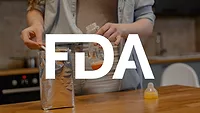FDA Asks Infant Formula Industry to Double-Check Food Safety Controls

Credit: Jaye Haych via Unsplash
In a letter addressed to infant formula manufacturers, packers, distributors, exporters and importers, and retailers, top U.S. Food and Drug Administration (FDA) officials called upon industry to help the agency in protecting infants by ensuring the safety of their food. The letter was signed by FDA Commissioner Robert M. Califf, M.D. and Director of FDA’s Center for Food Safety and Applied Nutrition (CFSAN) Susan T. Mayne, Ph.D.
Throughout 2022, FDA was faced with a national infant formula crisis precipitated by a food safety incident involving major supplier Abbott Nutrition, which involved a significant recall of Cronobacter sakazakii-contaminated product and halted production at Abbott’s Sturgis, Michigan facility for several months. After dealing with the unsafe formula and subsequent supply shortages, FDA reviewed its response to the crisis and developed a prevention strategy for Cronobacter contamination of powdered infant formula.
FDA’s March 8 letter to industry reflects conversations held between the agency and infant formula manufacturers that took place during regular meetings over the past two months. The meetings facilitated dialogue about industry’s current food safety practices, including practices the FDA has observed during inspections, and opportunities for improvements. The agency encourages industry to make use of the information provided in the letter to:
- Evaluate established systems of production and in-process controls to ensure that appropriate controls are implemented to prevent adulteration of infant formula
- Ensure full compliance with all relevant regulations
- Consider food safety concerns laid out in the letter
- Adhere to the notification requirement of an adulterated or misbranded product that has left the production facility.
FDA also asks that firms voluntarily notify the agency any time a product sample is found to be positive for Cronobacter or Salmonella, even if the affected product has not been distributed. Food safety concerns at powdered infant formula manufacturing facilities that FDA urges industry to consider include:
- Controlling water in dry production areas
- Verifying the effectiveness of controls through environmental monitoring
- Implementing appropriate corrective actions following the isolation of a pathogen from an environmental sample or product sample
- Implementing effective supply chain controls for biological hazards
- Identifying all relevant biological hazards.
Looking for quick answers on food safety topics?
Try Ask FSM, our new smart AI search tool.
Ask FSM →








